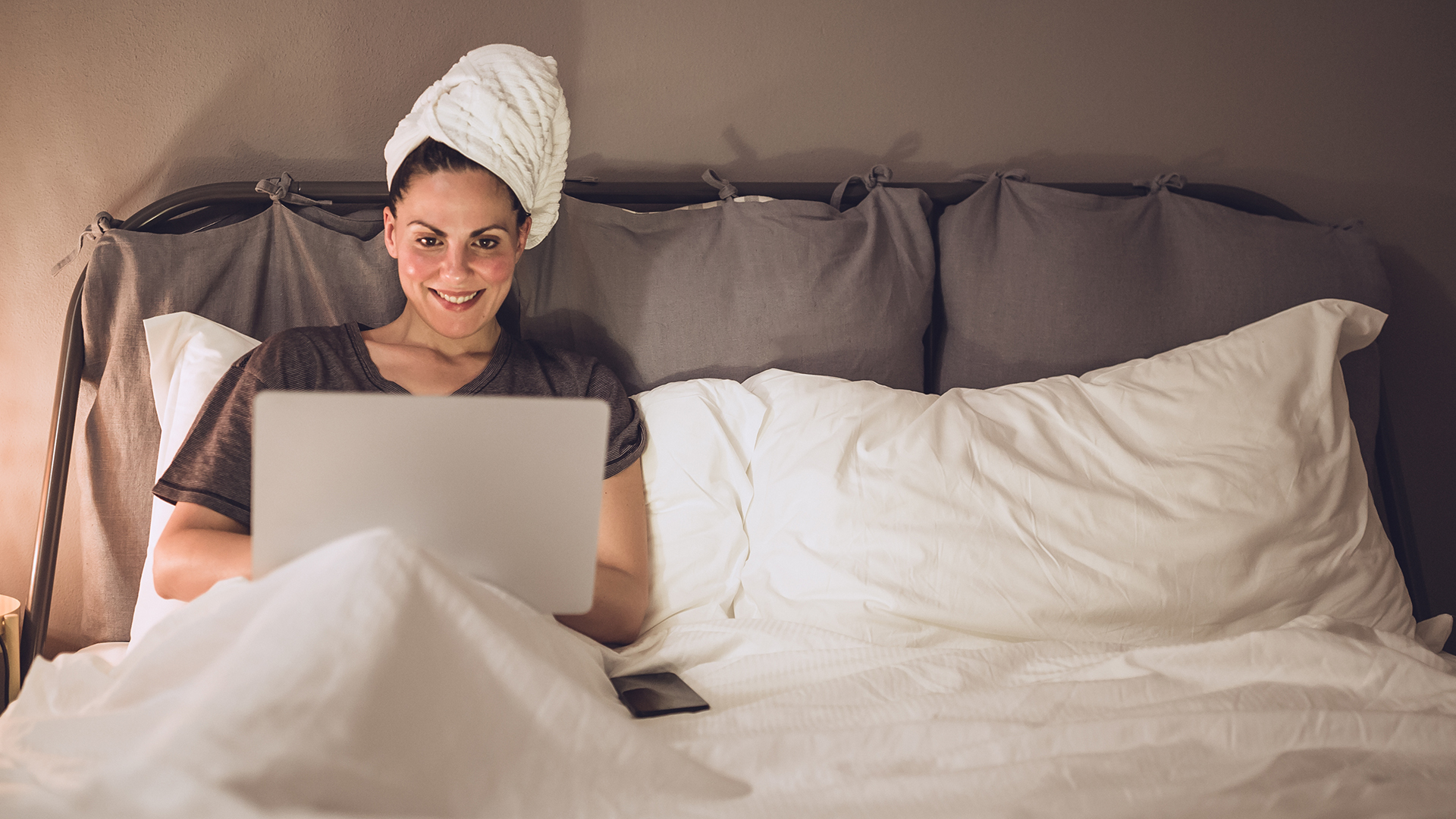
A warm shower is a relaxing part of the bedtime routine, and when you're ready to drift off at the end of your wash, who wants the rude awakening of a hot and noisy hair dryer? But before you put your wet head on your best mattress, you need to think about what that water might be doing to your bedding.
Rex Isap, bed expert and CEO at Happy Beds warns that sleeping with wet hair is bad for more than just your split ends. “When your pillows and bedding absorb the water from your hair, it creates the perfect breeding ground for bacterial and fungal growth as they thrive in a damp environment."
And all that growth doesn't stay tucked up in your pillow. As Rex explains, "this fungi could then be transferred to your scalp or face, putting you at risk of fungal infections." Gross and dangerous – here's why it really is worth grabbing your best hair dryer before bed.
#1. Wet hair can result in a moldy mattress
Going to bed with wet hair might seem like a harmless habit, but it could be causing serious harm to your mattress. “If the water from your hair touches your mattress during sleep, this could cause water damage," warns Rex.
“Water-damaged mattresses are more susceptible to the growth of mold," says Rex. "If inhaled or touched, this could result in an allergic reaction such as red eyes and sneezing."
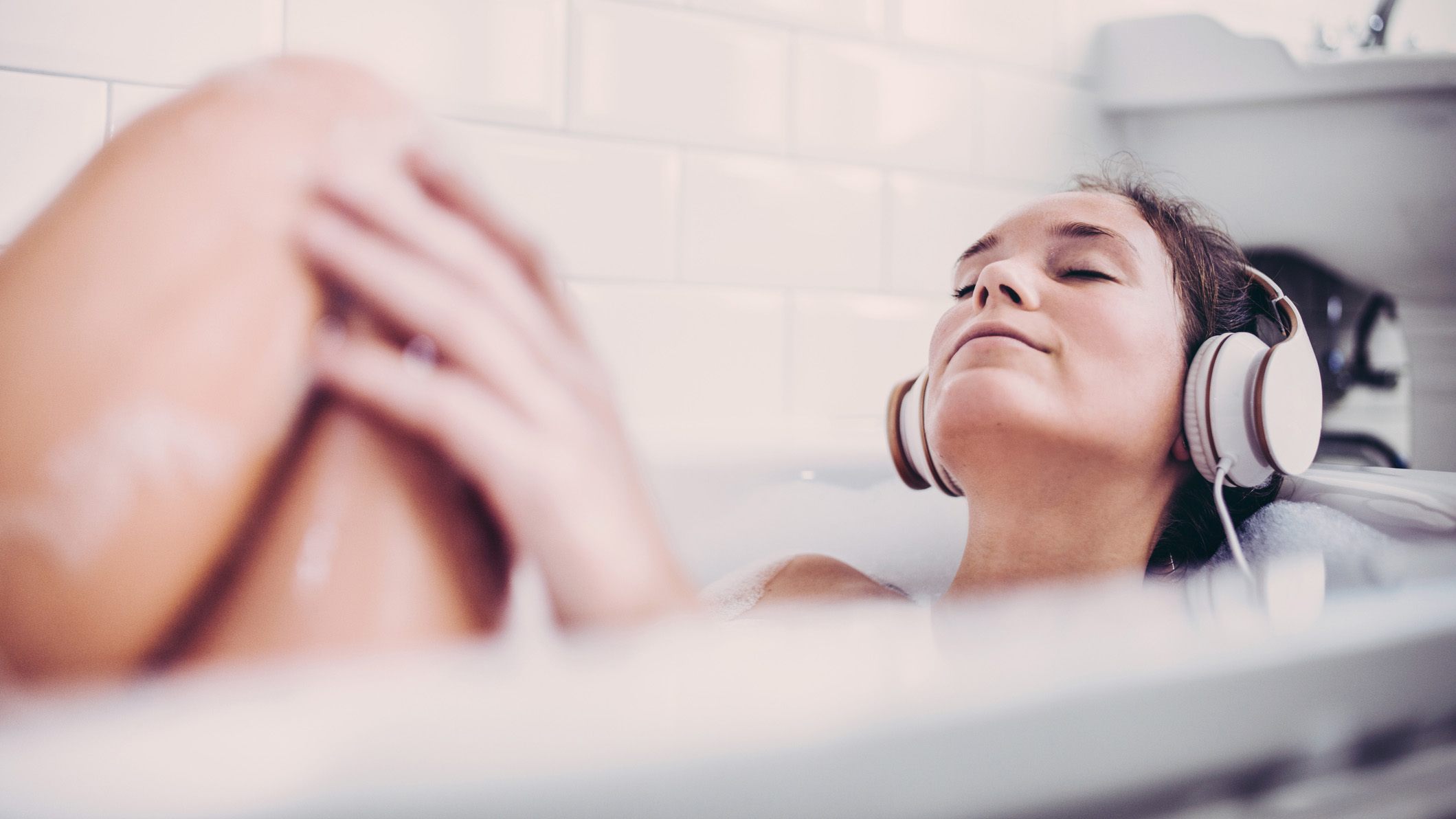
Once a mattress is wet, it takes a long time to dry. Beneath the bedding, this moisture can't dissipate, and instead gets trapped within the layers of your mattress. As well as mold, this damp can allow dust mites and bed bugs to thrive, as well as result in staining – "not to mention the fact it could cause an unpleasant smell in your bedroom,” says Rex.
If you've gone to sleep with wet hair the night before, instead of making your bed first thing, pull the sheets back in the morning and give your mattress time to breathe. And if you're worried your previous pre-bed shower routine might have damaged your mattress, we have some advice on how to get rid of dust mites and how to get rid of bed bugs.
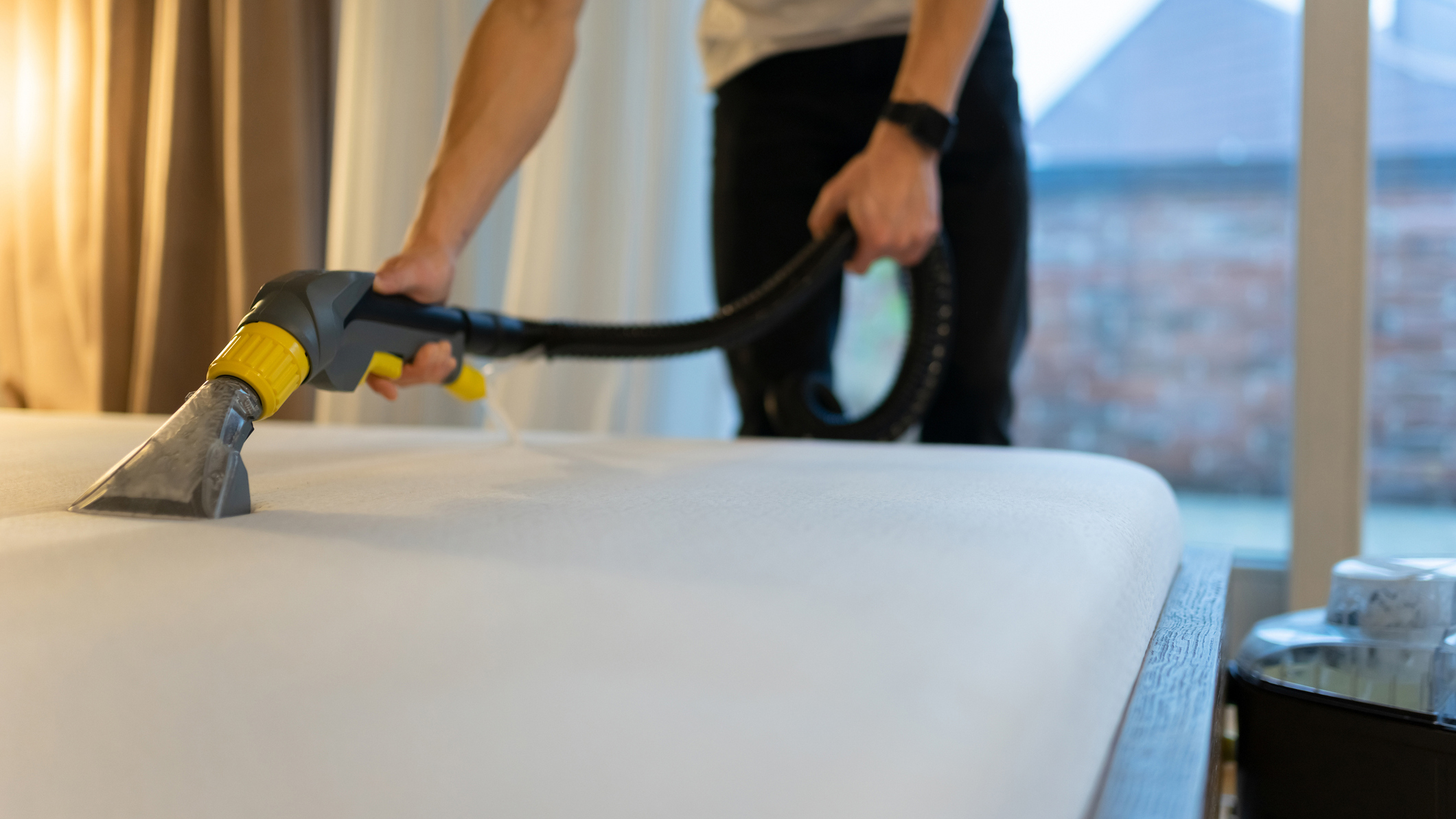
The best mattress protector can help limit harm from wet hair, while investing in the best mattress topper can provide an extra barrier of protection. But keep in mind that if you sleep with damp hair, it isn't just the mattress that will be suffering...
#2. You might end up with neck ache
Going to bed with wet hair and waking up with a pain in the neck? It's not just a coincidence – there's an unexpected connection between the two. “Wet hair can result in the fillings of your pillow being unevenly distributed," explains Rex. "This will affect how supportive it is."
Instead of gently cradling your head, this uneven distribution can hold your neck at an uncomfortable angle. As Rex says, "this can lead to physical issues such as back and neck pain, as your neck and spine should be aligned when you sleep."
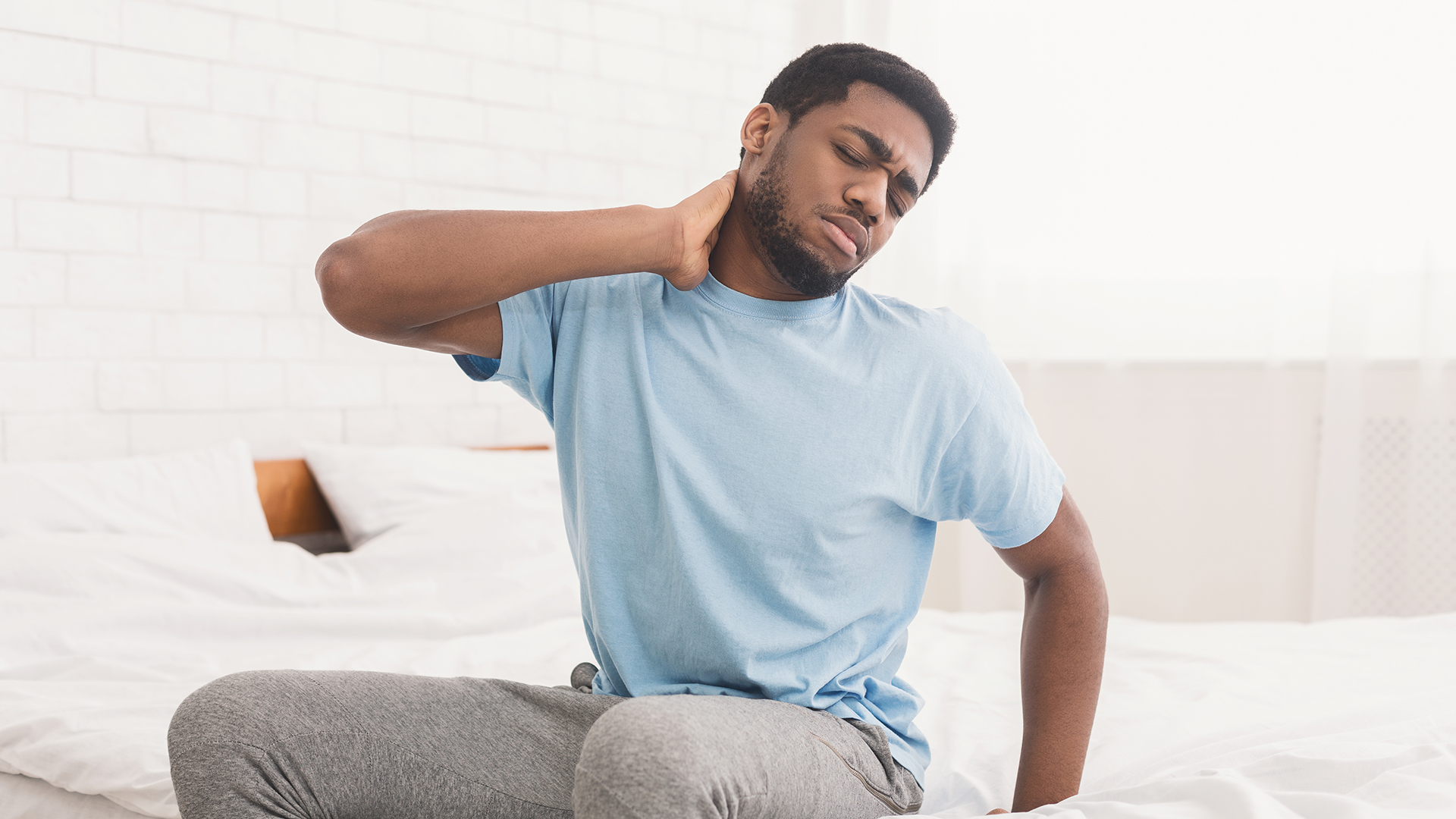
Wet hair is also a reason why pillows can turn yellow, especially if you haven't done a very good job washing out the shampoo and conditioner. And similar damp staining might mean you have a lot of work to do next time you clean your headboard. Although, at least when your headboard gets damp, it isn't against your skin. Which brings us to the next problem...
#3. Damp pillows can cause skin infections
As Rex mentions, going to bed with wet hair turns your pillow into the kind of damp, warm environment that bacteria and fungi love. When you lie on your pillow, this fungi can then transfer to your bare skin, potentially resulting in an infection.
“One of the most common fungal infections of the skin is ringworm, which can cause a dry, scaly, or itchy patch on the affected area. It is frequently spread through contact with items infected with this type of fungi, including bedding, according to the NHS website," says Rex.
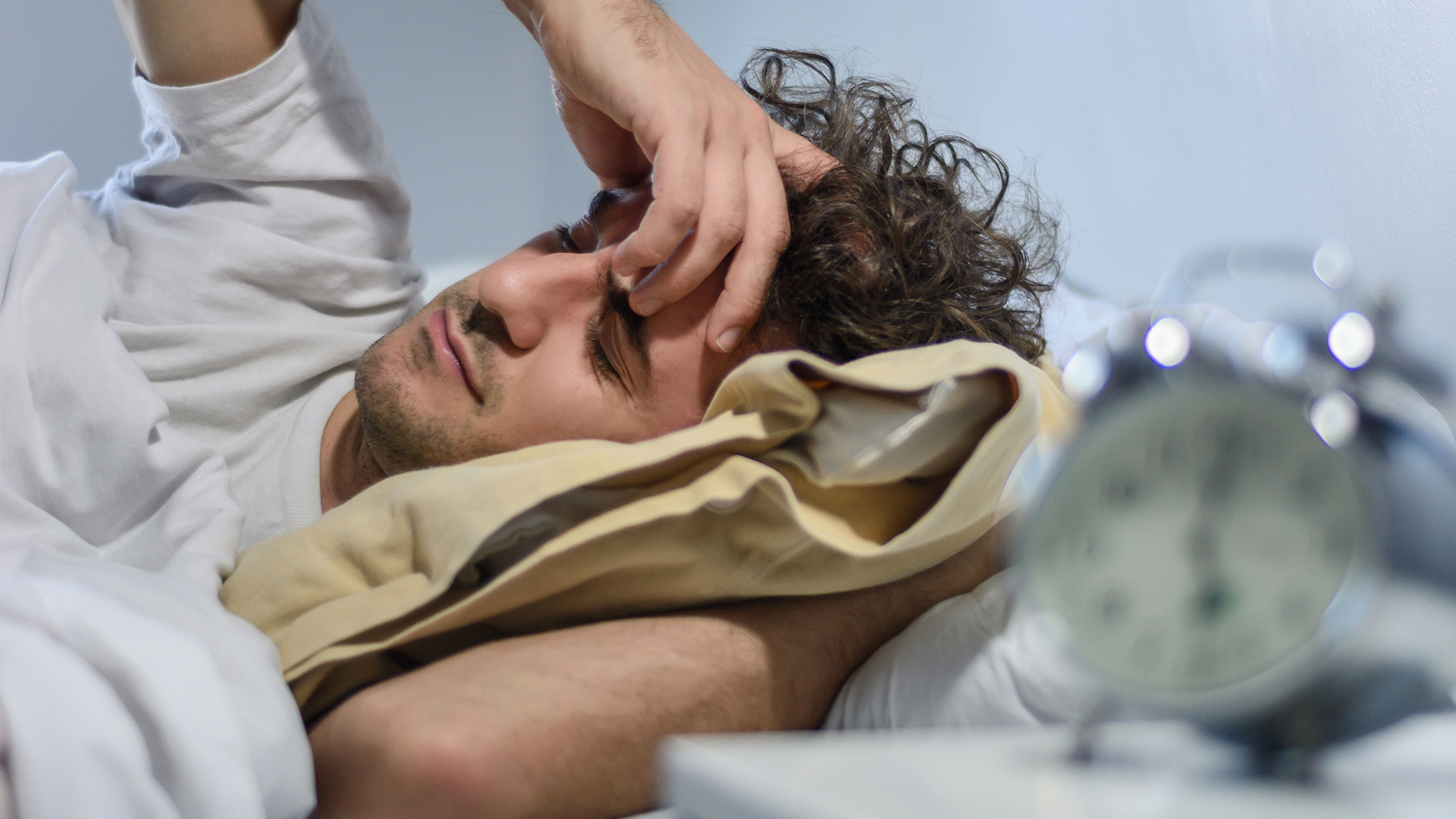
Worried about infections? We have some advice on how to clean your pillows, which you should aim to do roughly every six months (even if you always go to bed with dry hair). Additionally, it's worth investing in some pillow protectors – fabric socks that sit between your case and pillow. This added barrier can prevent too much moisture from your damp hair seeping into your pillow.
But the best solution is to simply dry your hair before going to bed. If you don't have a hair dryer, we can help you find one that will make drying your hair as quick and easy as possible – check out our guide how to buy a hair dryer.
What to do if you go to bed with wet hair
Despite your best intentions, do you still find yourself occasionally going to bed with wet hair? Here's what you can do to limit the damage it does to your mattress.
#1. Get rid of the worst of the moisture
While dry hair is best, if you don't have time for a full blow dry routine, the next best option is to remove the worst of the moisture. Use a microfiber towel or have a quick blast with the hair dryer so your hair isn't sopping wet by the time you get into bed.
#2. Regularly clean your mattress
You should deep clean your mattress twice a year anyway, but if wet hair is causing water damage, you might need to do it more regularly. However, stripping the bed, washing your sheets, and spot cleaning stains once a week gives the mattress a chance to air out and you a chance to deal with small problems before they become major issues. This regular cleaning doesn't have to be a massive chore – you can clean your mattress with household products, and if you wait until the last hours of the weekend for your big tidy, you might even find this so-called Sunday reset helps you sleep.
#3. Invest in mattress and pillow protectors
It's worth buying mattress and pillow protectors even if you don't go to bed with wet hair, as they help keep your sleep setup as fresh as possible. As well as adding a barrier between you and your bedding, these protectors are significantly easier to wash than a mattress or pillow. So if things do get damp, you can simply whip off the protectors, give them a wash, and keep the mattress beneath clean.







